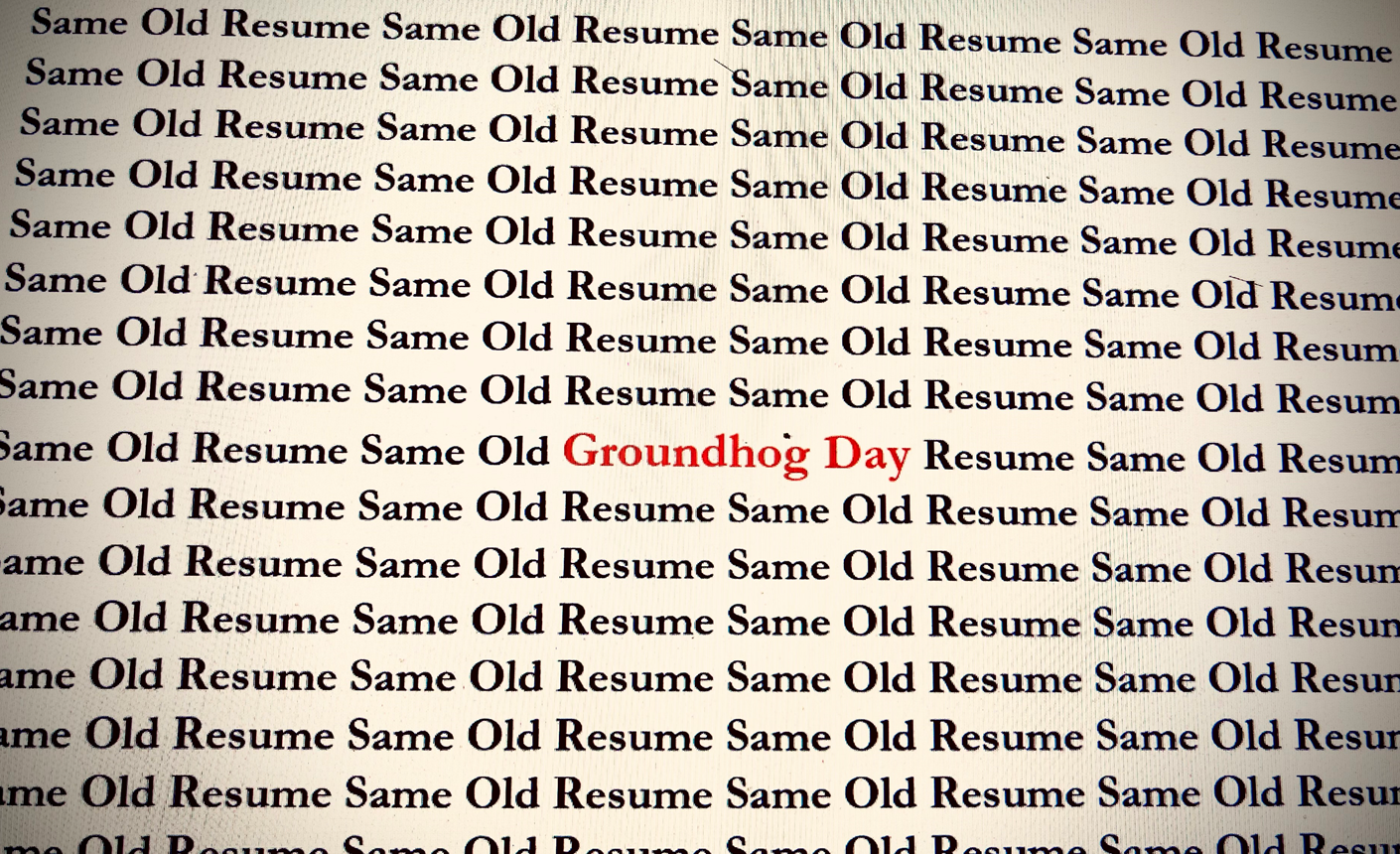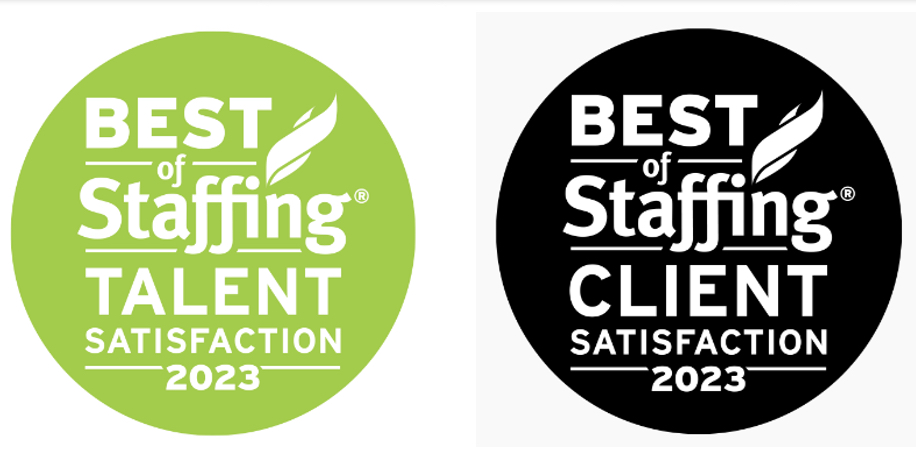Six more weeks of winter. Punxsutawney Phil has spoken, and who are we to argue with the guru of Groundhog Day?
Besides, as strong as our affinity for groundhog prognostication may be, we’re more partial to the philosophical meanderings of Bill Murray’s Groundhog Day alter ego Phil Connors, awakening every morning and forced to relive the same day, over and over and over again. (And if you haven’t seen the movie, consider it placed on your formal Must Watch list.)
“What if there is no tomorrow?” Phil ponders during one of the endless repeats of February 2 that he’s forced to live through. “There wasn't one today.” That kind of thinking, at first, leads Phil from repeating certain mistakes day in and day out at first. But over time, he as he becomes aware of them and learns to recognize those errors, he adapts. He alters his behaviors and approach, changes his outlook and his expectations, and ultimately…no, we’re not going to spoil it here.
Like Phil (small spoiler alert) stepping in an icy puddle time and again, there are some mistakes we see job seekers continuously making, over and over again. And if those mistakes are repeated enough times, there may be no tomorrow when it comes to a particular position you’re hoping to land. But fear not.
While you may have to wait six more weeks for spring to arrive, you don’t need to put off for another minute improving on some of those job-seeking errors that endlessly plague so many people out there. Charly Vie, Manager of Professional Hiring for Eclaro, and recruiter Chris Viemeister—two of Eclaro’s top experts in recruiting and helping connect the Right People with the right positions—are here to share their insights into recognizing and fixing those errors so you don’t find yourself in a Groundhog Day grind during your job search.
Using a Single Generic Resume: One size most definitely does not fit all, more so in the job-seeking space than almost anywhere else, actually.
“Way too often candidates just do send out a generic resume,” Charly observes. “Employers develop job descriptions for a reason—you will be doing that job. So if you’re not flaunting your skills, you won’t get an interview. Most important is to streamline and tailor your resume to each position you’re applying to. I don’t mean you should ‘make stuff up,’ but if the job is seeking data mapping skills and you’ve done it, make sure there is a prevalent bullet that says ‘data mapping’ and where and when you did it!”
“Hiring managers need to see what they’re looking for on a resume,” Chris adds. “Use the job description to make sure those bullets are in the right order and your specific experience gets the spotlight.”
Additionally, and no less important, please, please proofread your resume. There are hiring managers who may toss out a resume because of spelling mistakes, grammatical errors and other oversights that demonstrate, among other things, a candidate’s lack of attention to detail. “If you don’t care enough to make sure your own resume is correct,” one manager recently pondered aloud, “what does that say about the amount of care and focus you’ll apply on the job?”
Not Doing Research on a Company Where You’re Hoping to Work: People spend countless hours researching the next vacation spot they’re going to visit, days digging up information on which McDonald’s within driving distance is going to be offering the McRib. Why wouldn’t they spend the same amount of time learning about a company they’re hoping to join?
“Employers want you to know where you’re interviewing,” Charly points out. “While you don’t need to know the company inside out, familiarize yourself with the firm. Don’t you want to know who you’re interviewing with?”
There are any number of ways to find information, but if you need help, we know somebody you can reach out to for assistance. “Good recruiters can provide insight about the companies we work with,” Chris notes. “Ask us for help if you need it.”
Not Adequately Preparing for the Interview: “Pants still matter!” Chris says. “Get yourself in a quiet place where you can focus, and make sure you dress the part. Companies want to hire the right people, and the right people care about the role and the work. Too many times I’ve talked to candidates on the move or who are unable to speak clearly. Even the most experienced candidates will fail if they’re not treating interviews with professionalism.”
“There are even good things you can do during the interview to get some feedback,” Charly says. “Asking things such as ‘Is there anything else I can tell you about myself’ or ‘When can I expect to hear some feedback’ can be a positive.”
Forgoing Flexibility During the Job-Search Process: “If you’re really looking for a new job, please be prepared to take time off for an interview,” Charly offers. “A lot of companies will do a video or phone first, but then are returning to the in-person interview onsite. Also, you want to see where you’ll be working. Environments are key to a healthy career. And body language goes a long way—enjoy coming in for a meeting.”
Overstating (or Worse) Your Education, Skills, Qualifications and History: Fake it until you make it is not the best advice to follow. “Have you heard of background checks?” Chris says. “Everything on that resume should be able to be validated by a company. Coding experience? They’ll find out pretty quickly what level your skill is. You can’t talk yourself into a role. My best candidates are always honest with what they have and have not done—especially the ones looking to learn something new!”
Not Knowing Your True Strengths and Weaknesses: What is your story? What is your superpower? What makes you a great candidate for a particular job? What makes you who you are as a person? You may think you know the answers, or you may not have given it much thought. In either case, think about asking somebody to aid you in your self-assessment.
“It’s nice to have a professional third party help you with this,” Charly says. “Sometimes your friends and family are not the best people to ask when it comes to a professional job search. And sometimes when you hear what companies’ expectations are, it helps you understand what you are willing to do and not do.”
Ignoring Your Professional Online Presence: Your internet image is intrinsically linked to how the world views you, a fact that cannot be forgotten by job seekers.
“Update that LinkedIn profile!” Charly implores. “If you’re looking, click that ‘open to work’ tag! Let us know you’re looking—actively, passively, we are happy to connect. Also, connect with professionals! It doesn’t cost anything to have a conversation now or in the future.”
And keep that conversation going, especially with those who are working to help you. “Connect with your recruiter on LinkedIn,” Chris reiterates. “Once every few weeks, send us a hello. We love a good catch-up call. But remember, you can’t force a role into existence. Good things come to those who wait…and check in.”
Not Being Patient: “Patience here is definitely a virtue,” Charly says of the job-seeker space. “Don’t rush the process, please. Let the company get to know you and vice versa. Think about it, did you marry your partner after one date? Also, remember that managers are very busy, especially if they need to fill a position they may be doing the job they need to hire for.”
Chris has a cautionary tale worth remembering when it comes to taking a deep breath during this process. “I had a candidate go through multiple rounds of interviews, everyone was happy, but the final offer was taking a while. The candidate grew impatient and made it known. Turns out the company was completing a major project but at the same time trying to find this candidate more money. Do not rush the process. You don’t want to start off on the wrong foot. If it’s going to happen, it will happen. Trust your recruiter to push for you.”
Not Working with an Experienced Recruiter: “A good recruiter is working with the hiring managers to prequalify candidates for the roles, making sure that we send the right people to fill them,” Chris says. “We’re here to share insights about the responsibilities, what experience you should be highlighting and focusing on, and who it is you’re going to meet. You getting the job is us getting the job!”
“An experienced recruiter will absolutely help you prepare for interviews and introduce you the right way to the companies they work with and the managers who will interview you,” Charly adds. “If you think you’re better off without one, think again. We work hard for our clients and for our candidates to have a wonderful experience networking and interviewing. Most people don’t even get their resume seen if you send it without representation. People who use Eclaro use us for a reason.”




